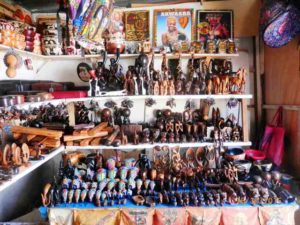
If one should ever decide to travel the length and breadth of Ghana, you would notice one particular thing that stands out in almost all sixteen(16)Regions and that is the widely spoken Akan Twi which would have qualified for the national language tongue but for the Queen’s language English. Considered one of the biggest Ethnic groups in Ghana, it is home to tribes like the Bonos, Ashantis, Fantis, Sefwis, and many more. Their ceremonies like marriages, puberty, and festivals but a few are always a sight to behold with clear-cut differences to tell them apart from the others.

Among these ceremonies is their naming ceremony known as”Abadinto”.This ceremony is held with the utmost importance because it is when a child is officially given an identity that sticks with him or her till death comes. When a child is born among the Akans, for the first six days, they are considered as a stangers as they could die and so as soon as the child survives this trail to the seventh ( 7) day, the ceremony is then held to officially welcome the said child. Today, however, we have cases where one chose to wait till when is up for it before this ceremony is held but originally, this was how it was done.

During the ceremony, chicken is gifted to the proud mother to congratulate her on such a feat since it’s a life-and-death situation. On the morning of the ceremony,if the child is a boy, a respected male stand in, is chosen, likewise, if the child is a girl, the same thing is done, but this time by a female. During the ceremony, the parents and godparents face the crowd where a name is presented to the entire gathering as the identity of the child. The child, covered in selected beads together with the mother is clad in white outfits which signifies joy. The one performing the ceremony after bringing the child to see the morning sun, asks for blessings from ancestors after which libation is poured, followed by the introduction of the staple food which is to tell where the child hails from. Alcohol is then introduced tothe child’s tongue, three(3)times, the same is done for water so the child knows the taste differences and tells the truth and does so vehemently when he or she grows up as an adult. When this is done and dusted, gifts for the child are then welcomed after which the child who has has gone through this rite and has been called by their chosen name is now a full member of the society. One important thing here is, if a child was born on a particular day, that child will have the day’s name as part of the chosen name. For example, a child born on Saturday is Kwame in that particular order.


Ceremonies of this nature are very important as it helps the culture to be paramount above all and for one to be seen as a bonified child of the society. Reasons why Akans even opted to wait for a week before a naming ceremony is done and measures taken to secure the child on earth is an interesting story for another day. The above mention is however how the Akans give names to their young on







